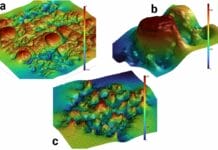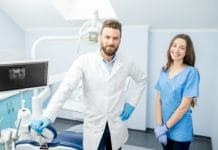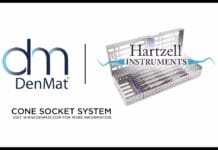As dental hygienists, we are always on the lookout for innovative approaches to enhance oral health and combat periodontal disease. A recent systematic literature review titled “Evaluation of the Efficacy of Probiotics Domiciliary Protocols for the Management of Periodontal Disease, in Adjunction of Non-Surgical Periodontal Therapy (NSPT)” provides an intriguing perspective on the potential role of probiotics in non-surgical periodontal treatment.1
Periodontal disease is primarily driven by an imbalance between the host, the immune response, and oral microbiota, leading to the destruction of periodontal tissues. Management involves restoring host-microbial balance, reducing inflammation, and promoting tissue healing. Recent studies propose a new pathogenesis model, suggesting a dysbiosis between the host and microflora, with key species from the orange and red complexes compromising host immunity and supporting inflammation.1
The primary therapy, non-surgical periodontal therapy (NSPT), has some limitations due to anatomical access and microbial recolonization. Probiotics are proposed as an adjunct therapy to enhance periodontal results by restoring oral microbiota balance and producing antimicrobials. This systematic review aimed to evaluate the efficacy of probiotics added to NSPT, analyzing clinical, microbiological, and immunological outcomes.1
Materials and Methods
The review assessed the long-term efficacy of probiotics as an adjunct to NSPT compared to control groups that received only NSPT. Randomized controlled trials, systematic reviews, and meta-analyses Clinical outcomes examined included pocket probing depth (PPD), clinical attachment level (CAL), and bleeding on probing (BOP). Microbiological outcomes focus on the abundance of periodontal pathogenic bacteria and oral commensal species.1
Results
Some results were promising, albeit with some limitations. In the short term (up to three months), the addition of probiotics to NSPT led to improvements in clinical parameters such as periodontal probing depth (PPD), clinical attachment level (CAL), bleeding on probing (BoP), and plaque index (PI). However, these improvements were not generally observed over periods longer than three months in most of the studies considered.1
The review also highlighted the significant heterogeneity of the studies and the lack of long-term microbiological and immunological data. These factors prevent any definitive conclusions about the efficacy of probiotics as an adjunct to NSPT.1
Clinical Applications
So, what does this mean for us as dental hygienists? First, it underscores the potential of probiotics as a novel approach to periodontal treatment. Probiotics could potentially help to rebalance the oral microbiota, thereby enhancing the efficacy of NSPT. However, the current evidence is weak and more high-quality, long-term studies are needed to confirm these findings.1
Secondly, it highlights the importance of a comprehensive approach to periodontal treatment. While probiotics may offer some benefits, they are not a magic bullet. Good oral hygiene practices, regular dental exams, and non-surgical periodontal therapy and periodontal maintenance appointments remain the cornerstone of periodontal disease prevention and management.
Lastly, it opens a potential avenue for patient education. As dental hygienists, we can inform our patients about the potential benefits and limitations of probiotics for oral health, helping them to make informed decisions about their oral care.
Conclusion
While the use of probiotics as an adjunct to NSPT shows promise, more research is needed to understand their potential benefits and limitations fully.1 With the lack of robust evidence, probiotics should be used with the understanding that they are not currently an “evidence-based” adjunct to non-surgical periodontal therapy. Patients should be made aware of this when recommending probiotics as an adjunct to NSPT.
As dental hygienists, staying informed about emerging research can help us provide our patients with the best possible care. Keep in mind, with further studies, newer guidelines may emerge as well. Staying aware of changes in clinical practice guidelines will improve oral health outcomes for patients as well as provide calibration of care.
Before you leave, check out the Today’s RDH self-study CE courses. All courses are peer-reviewed and non-sponsored to focus solely on high-quality education. Click here now.
Listen to the Today’s RDH Dental Hygiene Podcast Below:
Reference
- Butera, A., Folini, E., Cosola, S., et al. Evaluation of the Efficacy of Probiotics Domiciliary Protocols for the Management of Periodontal Disease, in Adjunct of Non-Surgical Periodontal Therapy (NSPT): A Systematic Literature Review. Applied Sciences. 2023; 13(1): 663. https://www.mdpi.com/2076-3417/13/1/663











